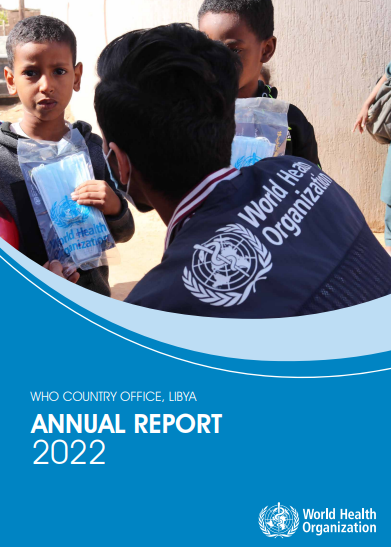 11 March 2018 – The WHO country office in Libya, with the support provided of the WHO Regional Office, and in collaboration with Libyan Ministry of Health, has organized a training course on hospital emergency preparedness and response and daily management of emergency units of hospitals that will take place from 4 to 9 March 2018, in Tunis, Tunisia.
11 March 2018 – The WHO country office in Libya, with the support provided of the WHO Regional Office, and in collaboration with Libyan Ministry of Health, has organized a training course on hospital emergency preparedness and response and daily management of emergency units of hospitals that will take place from 4 to 9 March 2018, in Tunis, Tunisia.
Emergencies, natural and human-induced, have negative effects on the health and well-being of people and communities, resulting in range of adverse consequences. Libya is among one of the countries in the Region that has facied a range of emergencies in recent years. It is important to enhance the resilience of national health systems by integrating emergency/disaster risk management into primary, secondary and tertiary health care, especially at the local level.
Hospitals and their emergency units are critical substrate for emergency response: both strong planning and organization of ‘everyday’ emergency care systems and specific advance planning for mass emergency events are essential to a resilient hospital. The leadership and management capacity of hospital managers and emergency unit managers in preparedness and response to emergencies, and management of their health care services is critical and should be developed and updated in Libya. An effective way to deal with these challenges requires training of hospital managers in main components of hospital emergency preparedness and response which will equip them with related up-to-date knowledge and skills.
The training will cover all important components of hospital emergency preparedness and response and also daily management of hospital emergency units. It will; be facilitated by 7 WHO experts and 49 Libyan hospital managers, 5 Tunisian hospital managers, emergency unit managers from different hospitals and policy-makers from national and state ministries of health.
During the inauguration of the workshop, Dr Seyed Jaffar Hussain, WHO Representative for Libya, addressed the challenges and problems that hospital are currently facing in Libya and he emphasized that WHO will provide technical support for activities related to emergency and disaster management in Libya. It was highlighted that it is crucial hospital managers in Libya become well trained in hospital emergency preparedness and response to bring change in their respective hospitals.
It is proposed to evaluate the outcome of the implementation of mini projects that will be given to participants and should be completed within 3 months after the course. This will provide an opportunity to follow up on participants to better understand how they have applied their learnings in practice form the course. The follow up meeting will be convened that participants will present the outcome of their mini projects.





 Libya country office annual report, 2022
Libya country office annual report, 2022
